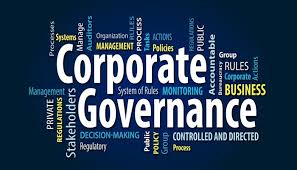Critics of corporate boards in Ghana, especially public sector boardrooms have plenty of ammunition against these boards owing to the many scandals that have rocked them in recent times. In the last 8 years alone, public boards have come under severe scrutiny and criticism for issues ranging from the signing of administrative letters by Board Chairmen, ratifying of questionable deals without due diligence, approving procurement contracts riddled with bid rigging, and the approval of unjustifiable emoluments for themselves, just to mention a few. Mysteriously, most of these scandals, no matter how grave and unconscionable they are, get swept under the rug within weeks of the media blitz that follows them – nothing happens; no corrective measures, no reviews and no closures. We just move on like nothing went wrong. After all, the state will not feel the loss – that is the attitude.
Comments posted on social media in response to some of these scandals give the impression that Ghanaians have given up on the standards they expect of our public boards for obvious reasons, a situation that is in direct conflict with the main responsibilities of these boards; providing oversight of long-term business strategy and the promotion of transparency and ethical conduct. Rather, the responsibilities of our boards are forcibly diverted to damage control as they fail to do their oversight jobs. In most cases, media men are paid to help them avoid scrutiny, according to some sources. Most of the social media comments seem to suggest that the public boards of today need the direction and controls that they are expected to give to management even more than the management teams need them.
Interestingly, our Boards have tolerated sub-standard performance from management teams largely because rather than direct, they have interfered in the management of these organisations; pointing fingers will see more of their own fingers pointing back at them. So quietly they draw their emoluments and happily exit without putting together proper handing over notes for want of being exposed as accomplices in the non-performance of management. There is no arguing the fact that the role of the board is to promote transparency and integrity as well as guarantee high levels of stakeholder value in the operations of the business. It is for these reasons that I believe Ghana needs a national code for its public boards as they are fast becoming “corporate governments” in their own rights who demolish rather than build structures that inspire confidence in management to do things right.
Years ago, one of my college lecturers, in a conversation on entrepreneurship made a profound statement that pointed to the Corporate Board as the maker or breaker of entrepreneurial dreams. He opined that the cohesion, depth and experience of Board members will be a blessing to management, the lack of these qualities will be a curse. He then pointed to the Nolan Principles of Governance which were introduced in 1995 by the UK government’s Committee on Standards in Public Life. These were values contained in codes of conduct across UK public sector institutions requiring all public service holders to “Lead with objectivity and integrity, be open, honest, accountable and above all selfless”
I am not worthy of reviewing Lord Nolan’s work by prescribing what our code must look like, but the fact remains that establishing and policing a strong ethical culture across Ghana’s public sector will require more than just rehashing his principles, it goes beyond grit; it will require regular education, regular reviews and some level of vigilance. I will in my sequel to this write-up however touch on the seven (7) pillars that in my opinion will ensure that individual directors are fairly independent and that collectively their contributions, committee work and related engagements will be effective enough, leading to a responsive, and responsible board that will serve the public good.
